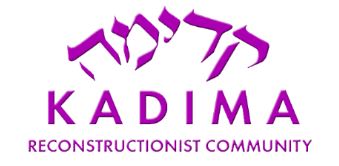The story tells of Heaven and Hell actually being nearly the same - a banquet table full of food surrounded by guests. Everyone’s spoon is too long to reach their own mouth. In Hell, the guests angrily get frustrated trying to feed their own mouth from their own spoon, while in Heaven the guests delight in feast feeding one another.
It wasn’t until much later in my life that I first read Christine Miserandino’s “The Spoon Theory” which she wrote in 2003. Having heard various Kadima members and progressive activists and healers speak about “having or not having the spoons” to do or participate in activities, Kadima’s Director of Operations Morgan Scherer, who serves as Kadima’s Disability Justice Coordinator, first directed me to the article and I have been forever grateful.
Having tested positive for COVID on February 7 myself, and still recovering from its effects on my body, I have been using spoon theory to assess my recovery and if and how I might show up as a rabbi, parent, partner, son, and neighbor in these last 11 days. To all those who have suffered from COVID in these nearly two years, I want you to know that I see you now in a new way, where empathy now meets sympathy in retrospect.
In fact, the idea of spoons surrounds Jewish Disability Justice Month (JDJM). Spoons (literally, spoons) are first mentioned in the Torah in parashat Terumah, the first shabbat of JDJM this year. Spoons, made of pure gold are included in the first list of items to be made as part of creating the mishkan - the holy space in which G-d might dwell among the people (Shemot/Exodus 25:29). They are next mentioned in parashat Vayakhel, the last shabbat of JDJM this year. In that parashah (which happens next week), the list is nearly identical, but it now serves as a list of what Betzalel has made - almost as a way to stay accountable to G-d’s original ask (Shemot/Exodus 37:16).
As we move into a weekend of Disability Justice programming and work, may we all have the spoons we need and may we all set ourselves to need the spoons we have.

 RSS Feed
RSS Feed